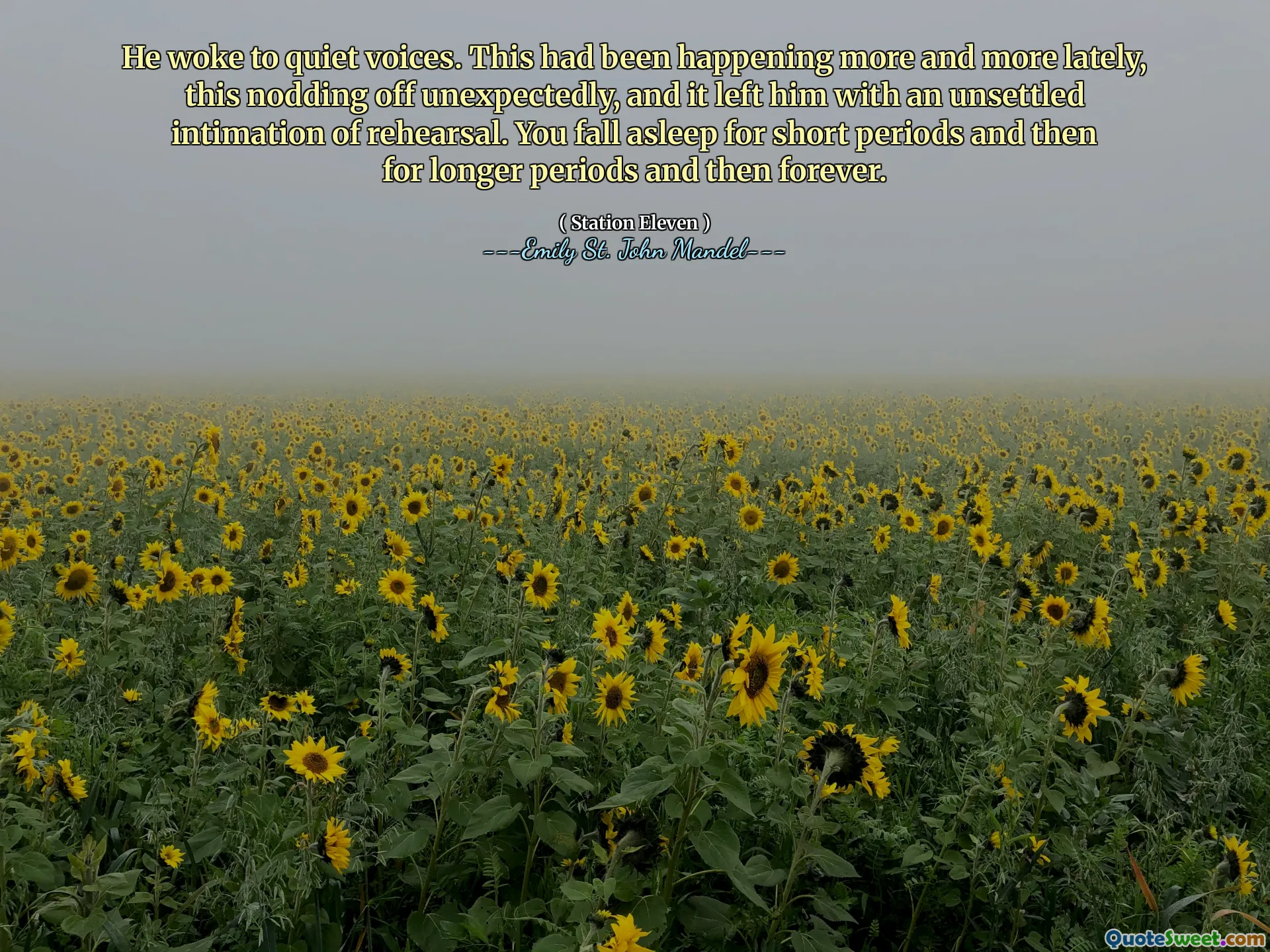
He woke to quiet voices. This had been happening more and more lately, this nodding off unexpectedly, and it left him with an unsettled intimation of rehearsal. You fall asleep for short periods and then for longer periods and then forever.
In "Station Eleven" by Emily St. John Mandel, the protagonist experiences a growing pattern of unexpectedly dozing off, leading to a sense of disquietude. This recurring disturbance creates a feeling of being caught in a cycle, almost like a rehearsal for something ominous. The fleeting moments of sleep gradually extend, instilling a sense of anxiety about the nature of existence and the inevitability of longer slumbers, possibly even the final one.
This narrative reflects a broader theme of mortality and the fragile nature of life. The character's encounters with sleep suggest an awareness of transient moments and the haunting realization that life can slip away in fragments. This exploration of consciousness and the fear of oblivion resonates throughout the unfolding story, highlighting the tension between living fully and the looming shadow of an uncertain future.





